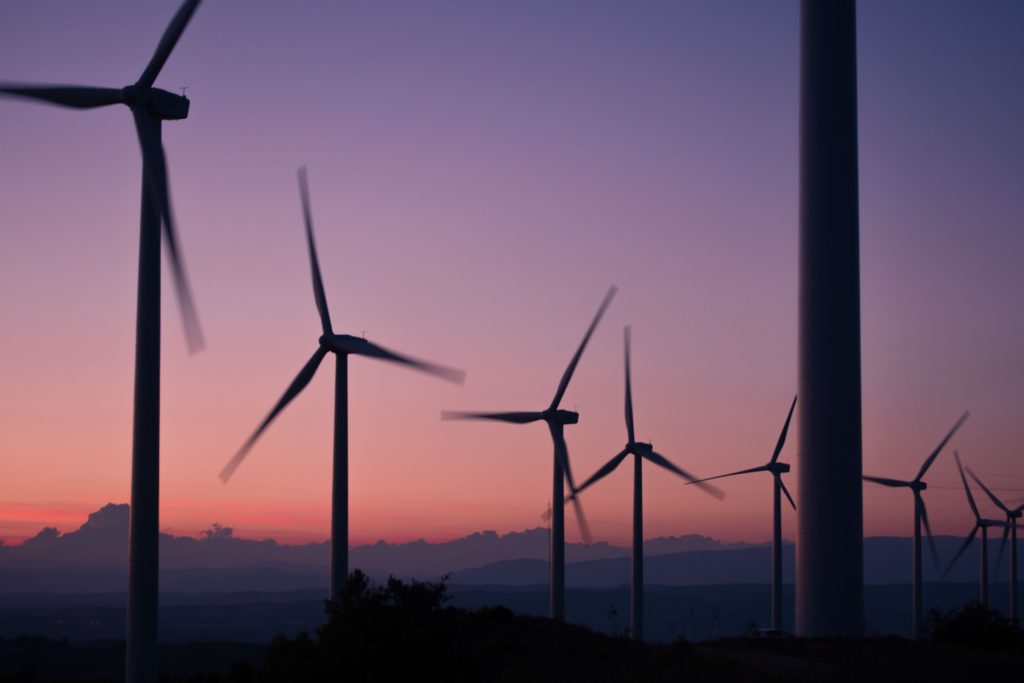26.03.2021
The European Commission is expected to update the EU Industrial Strategy by the end of April 2021. Although we are still in the middle of the Covid-19 crisis, we see a chance to connect the recovery with the green transition and build a more sustainable economy and society.
Transforming our industries is key to achieving that. It will create new jobs and support new competitive sectors. This is necessary if we want to achieve our climate goals. Currently, industry represents 20% of our economy and 40% of our greenhouse gas emissions.
Our lives depend a lot on greening our industry.
The European Commission needs to align
the EU Industrial Strategy with the European Green Deal. It needs to strive for resource and energy efficiency and
reduce the energy and resource intensity of
the industry. It needs to support innovative green technologies;
production of zero-emissions steel based on fully renewable hydrogen, as well as clean building
materials. It needs to tap the full potential of
renewables and electrify industrial processes in order to eliminate fossil
fuels.
It needs to be ambitious and take this chance.
The end of April will also mark the 70-year anniversary since the beginning of the European integration project and the launch of the European Community of Steel and Coal (ECSC). It is time to look to the future and to start rebuilding a European community founded on an energy efficient and fully renewables based energy system and with Paris compliant industrial production. We know that the green transition of our industries is possible, but we need political will, a conducive policy framework and massive investments to do that.
The time for the Green industrial revolution is now. Let’s take this chance!

10 concrete demands from the Greens/EFA for greening the EU industrial strategy
- Align the European Industrial Strategy and all sectoral strategies, such as the European Steel strategy, with the European Green Deal, to ensure that European industrial production is greenhouse gas emission free, and that only fully renewables-based hydrogen technologies are implemented.
- Stop EU funding to fossil fuels projects and develop science-based greenhouse gas (GHG) emissions reduction pathways for each industrial sector in line with the EU’s 2030 climate goals.
- Set up an EU Climate Change Council as an independent scientific panel to assess whether EU policies and measures, including the EU Industrial Strategy, are consistent with the Union’s climate commitments under the Paris Agreement.
- Anchor the energy efficiency first principle in all EU legislation, combined with massive investments to reduce the energy consumption in all sectors. This will save money and energy and create jobs by pushing European industries to become the most competitive providers of these technologies.
- Tap the full potential of renewables. Recognise renewables as a key strategic value chain, develop a dedicated industrial strategy for renewables and bring forward a ‘2030 pan-European 70 million solar rooftop programme’ as complementary to the Renovation Wave, including mandatory solar installations on public buildings in Member States.
- Reform of the EU Emissions Trading System and Effort Sharing Regulation to deliver on the EU’s climate targets, with no more free carbon allocations but with an ambitious carbon border adjustment mechanism that would protect both our industries and our planet.
- Establish a ‘resource efficiency first principle’ across all EU legislation, as well as sector-specific EU targets for resource efficiency. Enhance the circular economy, expand the existing Eco-design Directive as well as circular economy requirement to non-energy products by covering sectors that have a significant environmental impact – such as textiles or vehicle manufacturing – and make sure that design requirements include a longer lifetime for products.
- Create lead markets for in climate neutral technologies, products and services. Reform the EU framework for public procurement to get beyond the “lowest price award criteria” by making systematic use of sustainability award criteria, and revise the procurement standards for basic materials, such as in the building and construction sector. Agree on quotas for climate neutral products and materials, including climate neutral steel and cement.
- Enhance advisory services: Help businesses through the ecological transition. Evaluate the creation of ‘Green Hubs’ to provide clear information, advice, assistance and training for environmentally sustainable business transformation, entrepreneurship and business models, especially focusing on SMEs.
- Improve governance and transparency. Establish synergies between the various implementing instruments, such as Horizon Europe Partnerships, Industrial Alliances (& IPCEIs), industrial ecosystems and the Industrial Forum, in order to cover the entire value chain. Ensure a balanced representation of relevant experts, scientists, civil society organisations, consumer organisations and social partners in the various fora and instruments. Fully recognise civil society as a stakeholder in green industrial policy and ensure its involvement at various levels.
 Join our Campaign
Join our Campaign 